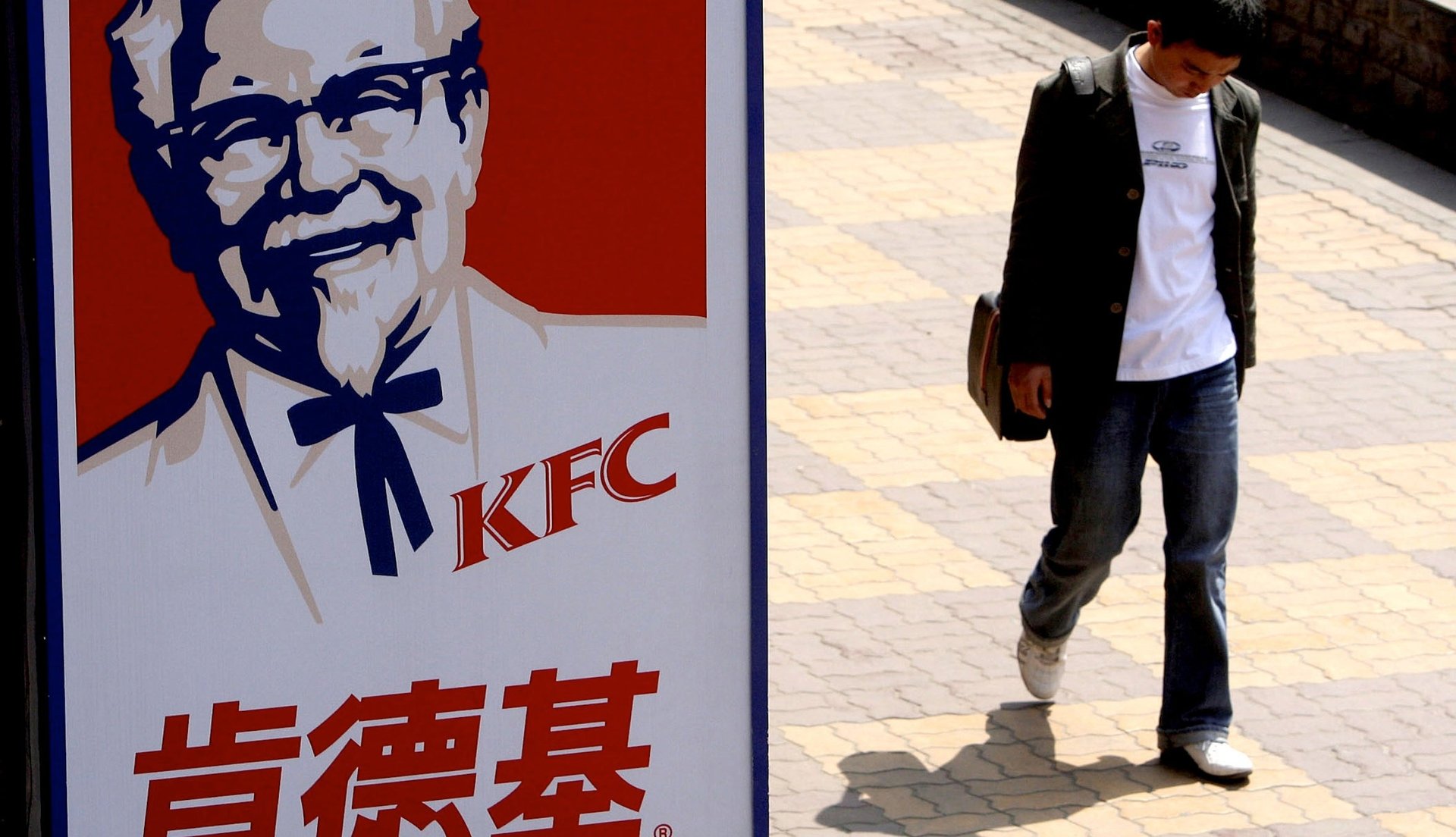“Dear China, we are sorry.” Yum Brands is the latest to learn that sometimes a multinational just has to apologize
Yum Brands has apologized to the Chinese. Following reports in Chinese state media that its KFC chain was allegedly selling chicken with higher-than-permitted levels of antibiotics, Yum’s China chief Sam Su said on Weibo, the country’s version of Twitter:


Yum Brands has apologized to the Chinese. Following reports in Chinese state media that its KFC chain was allegedly selling chicken with higher-than-permitted levels of antibiotics, Yum’s China chief Sam Su said on Weibo, the country’s version of Twitter:
“We feel regretful for all the problems,” and: “I sincerely apologize to the public on behalf of the company.”
But when communicating with the rest of its shareholders and customers, Yum has denied any problem with its poultry in China. In fact, its website says: “Our food is perfectly safe to eat, and KFC in China has very strict food handling and quality control standards.”
That statement is probably Yum’s true position. Its Weibo apology is born of a difficulty multinationals have to live with in China. Western companies often come under attack from the country’s state-run media. The negative propaganda serves to scare them from competing too strongly against Chinese companies. And when the attacks start, the best way to make them stop is to apologize, heartily and fulsomely, without trying to win the argument.
Walmart took corporate self-flagellation to new highs in October 2011 when it parted company with its top China executive for a minor labeling error at its shops in Chongqing, western China. It had little choice, however. The Chinese authorities had shut several of its stores temporarily in response to what the Chinese media called Walmart’s “customer fraud.”
“Given the absence of any effective recourse to challenge the government’s actions, Wal-Mart has no choice but to engage in a strategy of appeasement,” James Zimmerman, a partner at the Beijing office of law firm Sheppard Mullin Richter & Hampton told the LA Times when Walmart announced Chan’s departure.
In 2006, accountant Ernst & Young published research saying Chinese banks had built up almost $1 billion of bad loans. The Beijing government reacted strongly, saying the real figure was less than a fifth of this amount.
EY then retracted its report and said its calculations were incorrect (paywall). That must have been an extremely difficult thing to say for a firm that audits some of the world’s biggest companies. It shows how eating humble pie is a necessity of doing business in China. Colonel Sanders is just the latest to make this discovery.